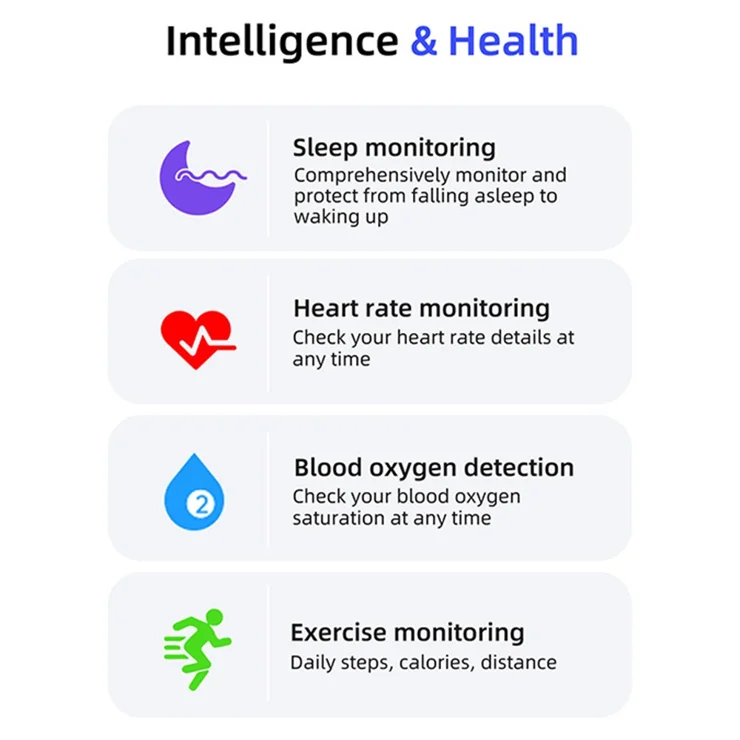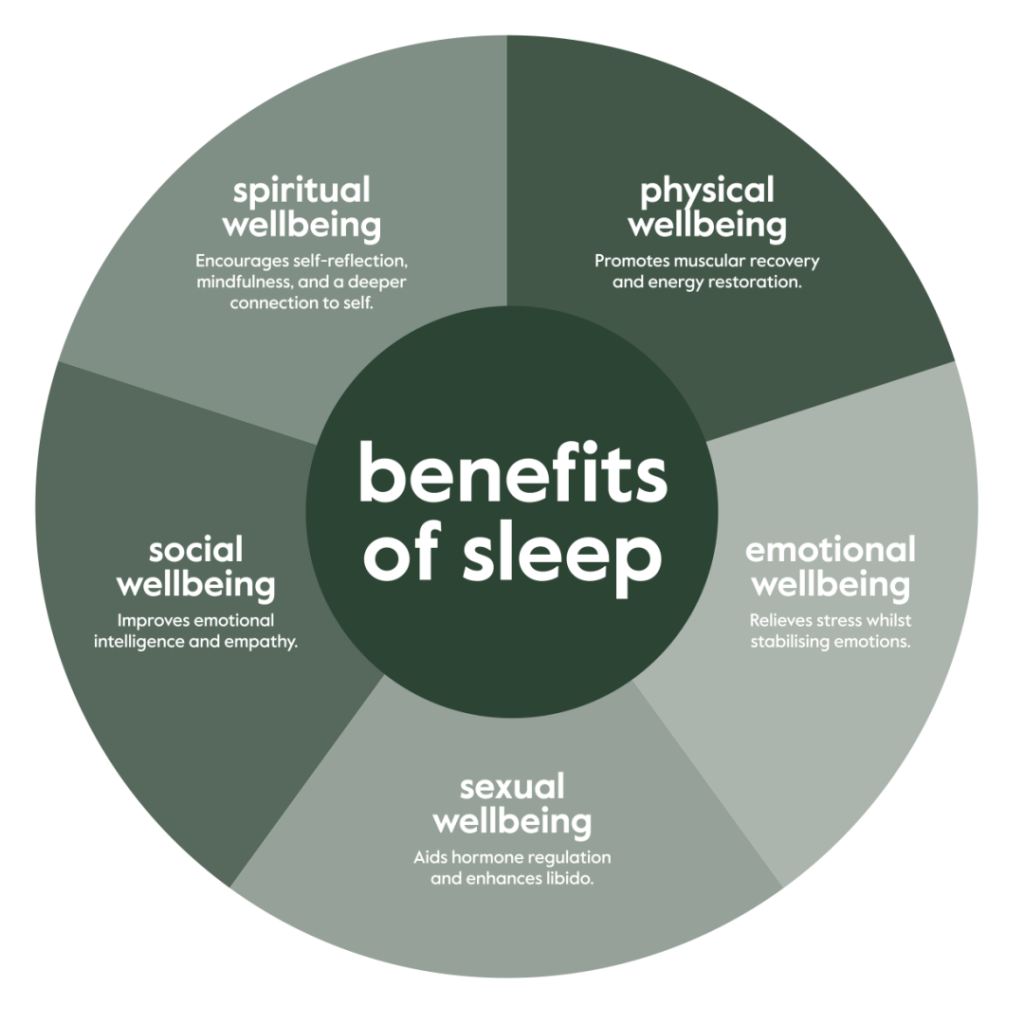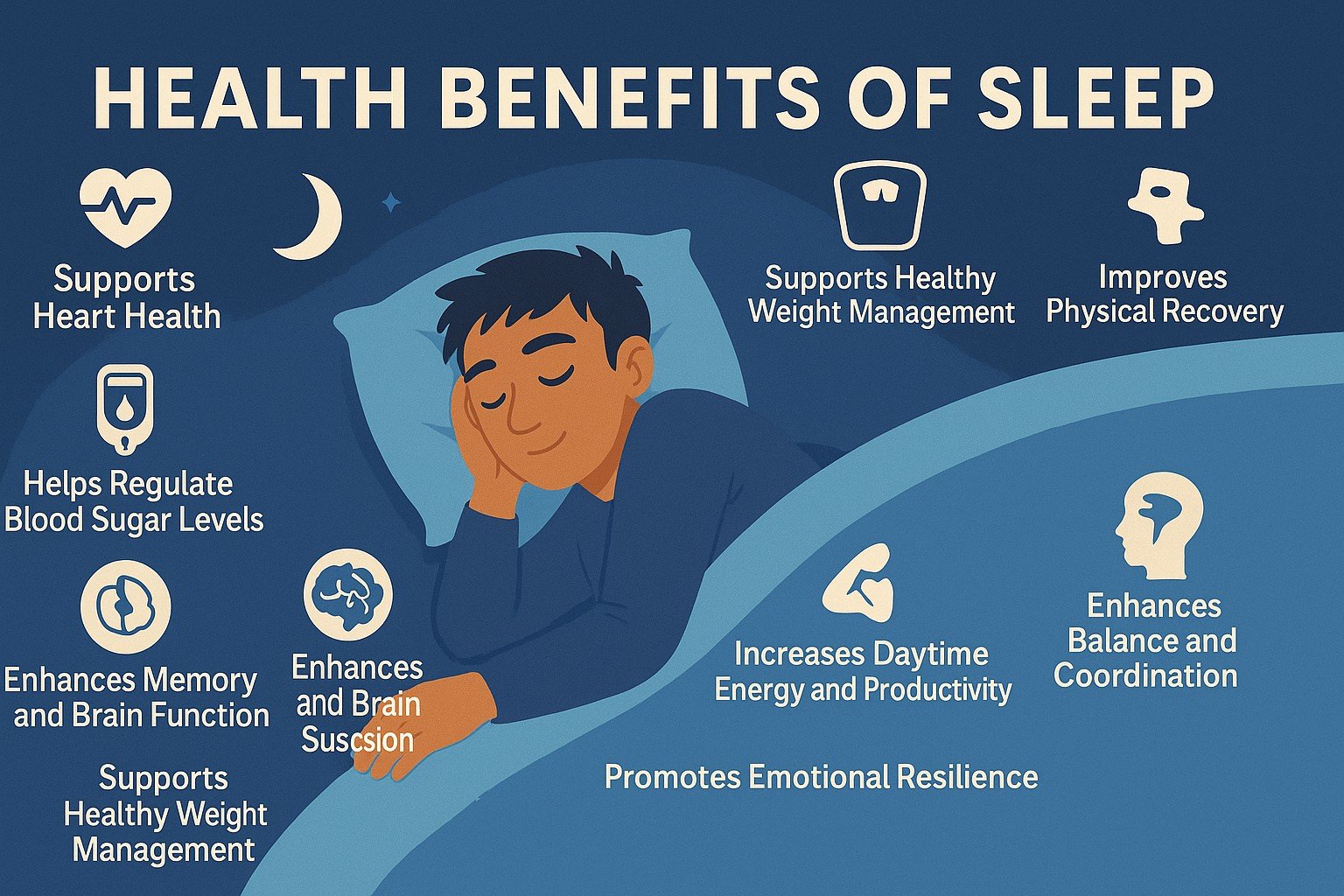Sleep Health Monitoring Benefits: How Tracking Sleep Can Improve Well-being
In today’s fast-paced world, the importance of **quality sleep** cannot be overstated. Whether you’re struggling with insomnia, battling burnout, or simply looking to enhance your overall well-being, understanding and improving your sleep health can have a profound impact. That’s where **sleep health monitoring** comes in. With the rise of sleep trackers and health devices, it’s easier than ever to gain insight into your sleep patterns and make informed decisions to improve your rest. But how exactly can these devices benefit you? Let’s dive into the world of sleep health monitoring and explore the numerous advantages it offers.
Why Sleep Quality Matters
Before we explore the specific benefits of **sleep health monitoring**, it’s crucial to understand why **sleep quality** is so important. Quality sleep is the foundation of good health, affecting everything from your mood to your cognitive performance. A night of restful sleep allows your body to recover, strengthens your immune system, and helps regulate hormones that control hunger and metabolism.
In fact, studies have shown that chronic sleep deprivation is linked to a range of health issues, including heart disease, diabetes, and even mental health disorders such as depression and anxiety. According to the Sleep Foundation, getting enough quality sleep is essential for your overall well-being and long-term health.
But how do you know if you’re getting the right amount of quality sleep? This is where **sleep health monitoring** comes into play. By tracking key sleep metrics, you can gain valuable insights into how well you’re resting, allowing you to take action and improve your sleep habits.
Key Benefits of Sleep Health Monitoring
So, what exactly can **sleep health monitoring** offer you? Here’s a breakdown of the most significant benefits:
1. Improved Sleep Quality
One of the main benefits of **sleep health monitoring** is the ability to track your sleep quality. Sleep trackers measure various aspects of your sleep, such as:
- Sleep stages: Sleep is not a one-size-fits-all process. We go through different stages throughout the night, including light, deep, and REM sleep. A tracker helps you understand how long you spend in each of these stages, so you can identify whether you’re getting enough deep sleep, which is essential for physical and mental restoration.
- Sleep cycles: Trackers monitor the timing of your sleep cycles and alert you if you’re waking up frequently or experiencing disruptions. These interruptions can prevent you from reaching the restorative stages of sleep, leaving you feeling groggy and unrefreshed the next day.
- Sleep efficiency: This metric tells you how efficiently you’re sleeping, factoring in the time spent in bed versus the time you’re actually asleep. Sleep efficiency is a great indicator of whether you’re getting the most out of your sleep time.
By regularly reviewing these metrics, you can gain a clear picture of your sleep quality and make adjustments to your habits. For instance, you might discover that adjusting your bedroom environment—like lowering the temperature or reducing noise—can significantly improve your sleep quality.
2. Early Detection of Sleep Disorders
Another valuable benefit of **sleep health monitoring** is the potential for early detection of sleep disorders. Conditions like **sleep apnea**, restless leg syndrome, and insomnia can be difficult to diagnose without specialized testing, but sleep trackers can help spot the early warning signs.
For example, some devices track your heart rate and breathing patterns while you sleep, which can help identify signs of **sleep apnea**—a condition where your breathing repeatedly stops and starts throughout the night. If your sleep tracker detects frequent disruptions in your breathing patterns, it might be time to consult with a healthcare professional.
Early detection is key, as many sleep disorders, when left untreated, can lead to serious health complications, such as cardiovascular disease or high blood pressure. With **sleep monitoring apps** and devices, you can track your progress over time, allowing for timely intervention and better long-term health outcomes.
3. Personalized Recommendations for Better Sleep
In addition to tracking your sleep patterns, many sleep trackers offer **personalized recommendations** based on your data. For example, if your tracker detects that you struggle with deep sleep, it might suggest adjusting your **sleep environment**—such as reducing room temperature or investing in blackout curtains to block out light.
Moreover, sleep health devices can provide insights into how your daily habits impact your sleep. If your tracker shows that your sleep is disrupted after consuming caffeine late in the day, you’ll have actionable data that can help you make better decisions to improve your sleep. Tracking factors like:
- Diet: See how foods and drinks impact your sleep.
- Screen time: Discover how time spent on your phone or computer before bed affects your rest.
- Stress: Learn how your stress levels influence your sleep and find strategies to manage them.
These recommendations not only help you get better sleep but also empower you to make positive changes in your lifestyle that benefit your overall health.
How Sleep Monitoring Enhances Daytime Performance
Getting quality sleep doesn’t just improve how you feel at night—it also has a profound impact on your **daytime performance**. Research has shown that people who get adequate, restorative sleep perform better at work, have more energy, and experience better mood regulation throughout the day. According to National Institutes of Health, sleep is directly linked to cognitive performance, mood, and physical health.
With **sleep monitoring apps** and trackers, you can track your sleep performance over time and make improvements that lead to better focus, mood, and productivity during the day. Whether you’re trying to boost your energy for an important meeting or need to enhance your concentration at work, understanding and improving your sleep can give you the edge you need.
It’s no wonder that people who use sleep monitoring devices often report feeling more alert, focused, and motivated throughout their day. With the power of **data-driven sleep tracking**, you can finally take control of your health and unlock your full potential.
Support for Long-Term Health Management
In addition to enhancing your daily performance, sleep health monitoring can also play a vital role in **long-term health management**. Regular monitoring can help reduce the risk of chronic conditions, such as heart disease, diabetes, and obesity—all of which are strongly linked to poor sleep habits.
For instance, studies have shown that people who get insufficient sleep are at a higher risk of developing high blood pressure, heart disease, and metabolic disorders like diabetes. With **sleep trackers**, you can monitor changes in your sleep habits over time and take proactive steps to address any issues before they become serious health problems.
By using a **sleep health device** regularly, you’ll gain a better understanding of how your sleep patterns correlate with your overall health, allowing you to make informed decisions and take preventive measures that support your long-term well-being.

Conclusion
In conclusion, the benefits of **sleep health monitoring** are vast and can have a significant impact on both your immediate well-being and long-term health. From improved sleep quality to early detection of sleep disorders, personalized recommendations, and enhanced daytime performance, tracking your sleep is a game-changer. With the right **sleep health devices** and apps, you can take control of your sleep, your health, and ultimately your life.
If you’re ready to optimize your sleep and achieve better overall health, start by exploring the world of **sleep monitoring devices**. Whether you’re using a simple tracker or a more advanced **wearable sleep health device**, the data you gather will empower you to make smarter choices and enjoy the benefits of a good night’s rest.
For more information on the latest sleep technologies, reviews, and expert insights, stay tuned to NeuroTechInsider.
Data-Driven Goal Setting: Tracking Your Progress
One of the most compelling aspects of **sleep health monitoring** is its ability to help you set and track sleep-related goals over time. **Sleep trackers** provide valuable data on your sleep patterns, efficiency, and overall rest quality, allowing you to monitor progress as you work toward improving your sleep. Whether you’re aiming for a more consistent sleep schedule or striving to increase the amount of deep sleep you get each night, the data from these devices can help you stay on track.
With **visual feedback** such as graphs and reports, many sleep trackers provide clear insights into how your sleep habits are evolving. For example:
- Sleep duration: Track how long you sleep each night and set a goal to improve your sleep duration gradually.
- Sleep efficiency: Measure how effectively you’re sleeping, aiming to reduce the time you spend awake in bed.
- Restorative sleep: Work towards increasing the amount of deep and REM sleep you experience each night.
This data-driven approach allows you to set realistic and measurable goals, which not only motivate you to maintain healthy habits but also provide you with the feedback necessary to make adjustments. It’s empowering to see your progress over time and know that your efforts are making a positive impact on your sleep quality.
When you see the tangible effects of your **sleep monitoring** efforts—whether it’s improved mood, better focus, or higher energy levels—it reinforces the value of these devices. You’ll feel more in control of your health and well-being, knowing that you’re actively improving your sleep with the help of technology.
Conclusion: Why Sleep Health Monitoring Should Be Part of Your Wellness Routine
In conclusion, **sleep health monitoring** offers a wealth of benefits that can significantly improve both your sleep and overall well-being. By understanding your sleep patterns, identifying disruptions, and receiving personalized recommendations, you can optimize your sleep quality, which in turn boosts your mood, cognitive function, and long-term health. With the help of **sleep health devices** and **sleep monitoring apps**, you gain the power to detect potential sleep disorders early, make positive changes, and set actionable goals that align with your wellness journey.
Not only do these tools help you improve your sleep quality, but they also offer a scientific, data-driven approach to managing and enhancing your health. Whether you’re dealing with insomnia, burnout, or cognitive fatigue, sleep health monitoring can empower you to take control and make smarter decisions about your rest.
At NeuroTechInsider, we are committed to bringing you the most reliable, scientifically-backed reviews of sleep and neurostimulation technologies. To explore in-depth reviews of devices like the **Apollo Neuro**, **NeuroVIZR**, **Sensate**, and other innovative wearables, visit our platform for expert insights on how these devices can support your sleep health journey. Join us in discovering how the future of sleep tech can transform your health, without the need for pills or noisy gadgets—just data-driven results.
Frequently Asked Questions (FAQs)
1. How accurate are sleep trackers?
Sleep trackers have come a long way in terms of accuracy. While they may not be as precise as professional sleep studies conducted in a lab, they provide a great general overview of your sleep patterns. Most **consumer-grade sleep health devices** are quite effective at tracking sleep duration, efficiency, and sleep stages (light, deep, and REM sleep), giving you useful insights into your sleep habits. Some advanced trackers also monitor heart rate, breathing patterns, and movement, offering a more detailed analysis.
2. Can sleep monitoring help detect sleep disorders?
Yes, **sleep monitoring devices** can help detect signs of potential sleep disorders such as **sleep apnea**, restless leg syndrome, or chronic insomnia. These devices track key metrics like breathing patterns, heart rate, and sleep disruptions, which can highlight abnormalities. If your tracker detects issues, it may prompt you to consult with a healthcare provider for further evaluation. Early detection can significantly improve your chances of receiving treatment before the disorder worsens.
3. How do I choose the best sleep tracker for my needs?
Choosing the right **sleep health device** depends on your specific needs and preferences. Here are some factors to consider when selecting a tracker:
- Tracking features: Look for trackers that measure the metrics most important to you, such as sleep stages, efficiency, or heart rate variability.
- Comfort: Since you’ll be wearing the device every night, choose a tracker that’s comfortable to wear and doesn’t disturb your sleep.
- Compatibility: Ensure the tracker syncs well with your phone or other devices and offers an easy-to-use app for tracking your data.
- Price: While some devices can be expensive, many effective options are available at a range of price points.
At **NeuroTechInsider**, we provide in-depth reviews and comparisons of various sleep and neurostimulation devices, helping you make an informed decision on the best option for your sleep health needs.
4. Are there any side effects of using sleep health devices?
For the most part, **sleep health devices** are non-invasive and safe to use. However, as with any wearable technology, it’s essential to follow the manufacturer’s instructions for proper use. Some users may experience discomfort from wearing a device during sleep, so choosing a tracker with a comfortable design is crucial. If you experience any pain or irritation, stop using the device and consult a healthcare provider. It’s also important to remember that while sleep trackers can provide valuable insights, they should not replace professional medical advice when it comes to diagnosing or treating sleep disorders.
5. Can sleep tracking improve my mood and mental health?
Yes, improved sleep quality can have a direct impact on your **mood** and mental health. Studies have shown that adequate, restorative sleep is essential for emotional regulation, reducing the risk of anxiety and depression. By using a **sleep monitoring device** to optimize your sleep patterns, you can experience greater mood stability, reduced stress, and increased mental clarity during the day. In turn, this can help you manage challenges like **ADHD**, **burnout**, or **cognitive fatigue**, which are often exacerbated by poor sleep.

Start Your Journey Toward Better Sleep Today
Ready to take your sleep health to the next level? Investing in a **sleep health device** is one of the best ways to understand your sleep patterns and make meaningful changes. Whether you’re dealing with insomnia, anxiety, or just looking to optimize your sleep, there’s a **sleep tracker** that fits your needs. Explore the latest **neuro-enhancement technologies** and **brain stimulation wearables** at NeuroTechInsider and get expert advice on the most effective devices for improving your sleep and overall health.
Don’t wait to experience the benefits of better sleep—your mind and body will thank you.
